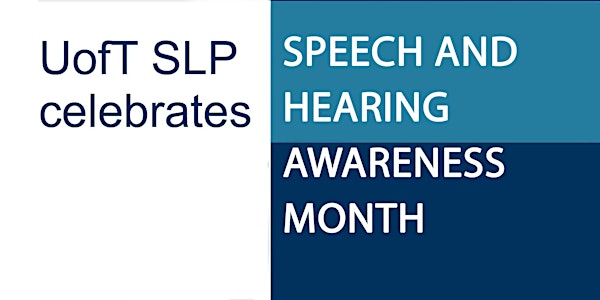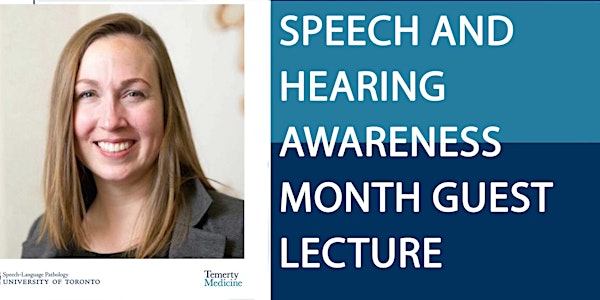May month lectures are FREE public events designed to promote awareness to speech and hearing disorders and highlight the professionals who work in the fields of Speech-Language Pathology and Audiology.
Cara E. Stepp, Ph.D. Professor, Departments of Speech, Language & Hearing Sciences, Otolaryngology – Head and Neck Surgery & Biomedical Engineering BOSTON UNIVERSITY
Abstract: Clients in every age group and every field of speech-language pathology may present with voice disorders. The majority of these voice disorders will either be hyperfunctional (e.g., muscle tension, dysphonia), or they will have a reactive hyperfunctional component (e.g., vocal fold nodules). Hyperfunctional voice disorders (HVDs) result in vocal effort, fatigue, pain, and even complete loss of voice. The mechanisms underlying HVDs are largely unknown. This talk will focus on potential mechanisms of HVDs through the lens of sensory and/or sensory-motor integration. We will discuss recent evidence of impaired sensorimotor function in HVDs from psychoacoustic studies, altered auditory feedback paradigms, and laryngeal kinematics inferred from high speed videoendoscopy. Combined, this evidence may motivate a paradigm shift for understanding the development, and the treatment, of HVDs.
Bio: Cara Stepp (she/her) is a Professor in the Departments of Speech, Language & Hearing Sciences, Otolaryngology – Head and Neck Surgery, and Biomedical Engineering at Boston University. She received the S.B. in Engineering Science from Smith College, S.M. in Electrical Engineering and Computer Science from Massachusetts Institute of Technology, and Ph.D. in Biomedical Engineering from the Harvard-MIT Division of Health Sciences & Technology. She completed postdoctoral training in Computer Science & Engineering and Rehabilitation Medicine at the University of Washington. Her work uses methods from speech science and speech motor control to improve assessment in voice and motor speech disorders.

